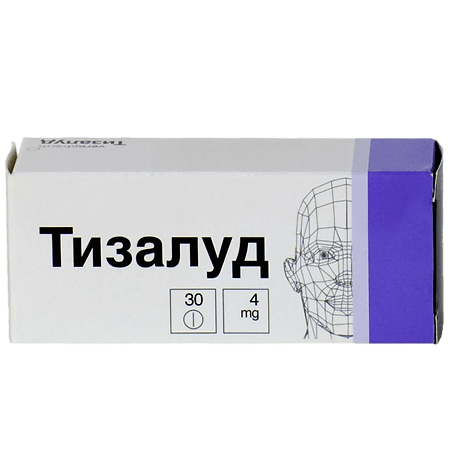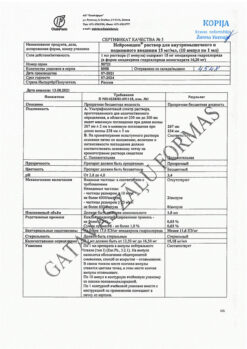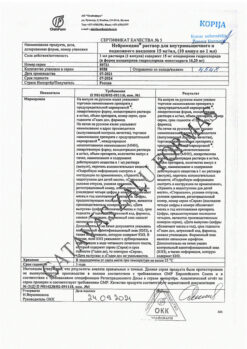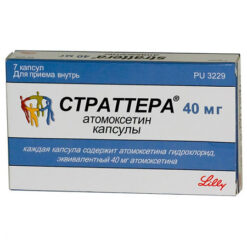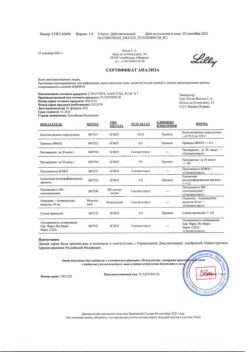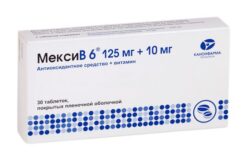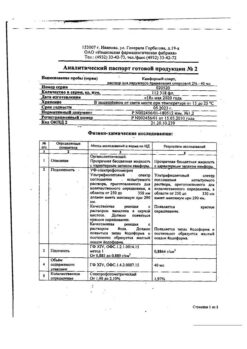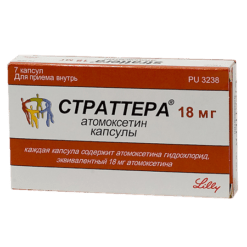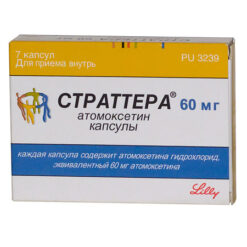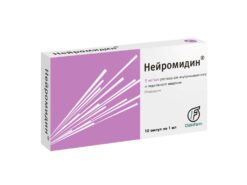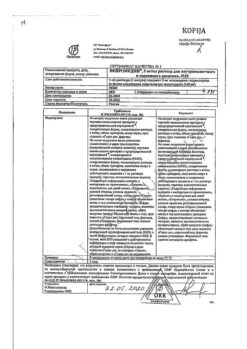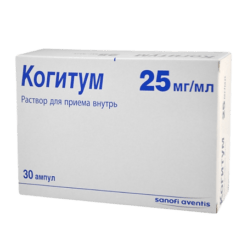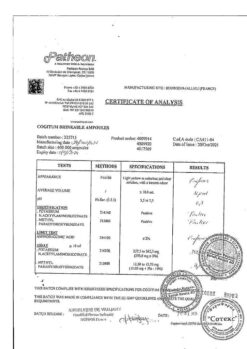No products in the cart.
Tizalud, tablets 4 mg 30 pcs
€7.91 €6.59
Description
Tizalud is a myorelaxant of central action.
Stimulates presynaptic alpha2-adrenoreceptors, which leads to inhibition of polysynaptic excitation transmission in the spinal cord, which regulates the tone of the skeletal muscles.
It is effective in acute painful muscle spasms and chronic spasms of spinal and cerebral origin.
Limits muscle stiffness in passive movements.
Indications
Indications
Spastic condition of skeletal muscles caused by neurological diseases (multiple sclerosis, chronic myelopathy, stroke, degenerative diseases of the spinal cord).
Painful spasm of skeletal muscles caused by damage to the spine (cervical and lumbar syndromes) or occurring after surgery (for a herniated disc or osteoarthritis of the hip).
Pharmacological effect
Pharmacological effect
Tizalud is a centrally acting muscle relaxant.
Stimulates presynaptic alpha2-adrenergic receptors, which leads to inhibition of polysynaptic transmission of excitation in the spinal cord, which regulates the tone of skeletal muscles.
Effective for acute painful muscle spasms and chronic spasms of spinal and cerebral origin.
Reduces muscle stiffness during passive movements.
Special instructions
Special instructions
Use with caution in patients with impaired liver and kidney function.
Impact on the ability to drive vehicles and operate machinery
At the beginning of treatment, if drowsiness occurs, activities that require a high concentration of attention and rapid psychomotor reactions should be avoided.
Active ingredient
Active ingredient
Tizanidine
Composition
Composition
1 tablet contains:
active substances:
tizanidine – 4 mg.
excipients:
lactose anhydrous (lactopress),
microcrystalline cellulose,
sodium carboxymethyl starch (Primogel),
magnesium stearate.
Pregnancy
Pregnancy
Since there are no controlled studies of tizanidine in pregnant women, it should not be used during pregnancy unless the expected benefit to the mother outweighs the possible risk to the fetus.
Tizanidine is excreted in breast milk in small quantities.
However, if it is necessary to use tizanidine during lactation, the issue of stopping breastfeeding should be considered.
Contraindications
Contraindications
Hypersensitivity to tizanidine.
Use for liver dysfunction
Use with caution in patients with impaired liver function.
Use for renal impairment
Use with caution in patients with impaired renal function.
Side Effects
Side Effects
From the nervous system: drowsiness, dizziness, hallucinations, insomnia, sleep disorders.
From the cardiovascular system: bradycardia, decrease in blood pressure (in some cases pronounced, up to collapse and loss of consciousness).
From the digestive system: dry mouth, nausea, dyspepsia, increased activity of liver transaminases, hepatitis, liver failure.
From the musculoskeletal system: muscle weakness.
Other: increased fatigue, hypercreatininemia.
In case of abrupt withdrawal after prolonged treatment and/or taking high doses of the drug (as well as after simultaneous use with antihypertensive drugs): tachycardia, increased blood pressure, in some cases – acute cerebrovascular accident.
Interaction
Interaction
Concomitant use of tizanidine with fluvoxamine or ciprofloxacin, inhibitors of cytochrome P450 isoenzyme 1A2, leads to a 33-fold increase in tizanidine AUC. The result of combined use may be a clinically significant and prolonged decrease in blood pressure, leading to drowsiness, weakness, and inhibited psychomotor reactions (in some cases, even collapse and loss of consciousness).
The simultaneous use of tizanidine with other inhibitors of the CYP1A2 isoenzyme – antiarrhythmic drugs (amiodarone, mexiletine, propafenone), cimetidine, fluoroquinolones (enoxacin, pefloxacin, norfloxacin), rofecoxib, oral contraceptives, ticlopidine.
Antihypertensive drugs (MDs) increase the risk of a pronounced decrease in blood pressure and bradycardia.
Ethanol and sedatives can enhance the sedative effect of tizanidine, so simultaneous use with other sedatives and/or alcohol is not recommended.
Overdose
Overdose
Symptoms: nausea, vomiting, marked decrease in blood pressure, dizziness, drowsiness, miosis, anxiety, respiratory failure, coma.
Treatment: gastric lavage, administration of activated carbon, forced diuresis, symptomatic therapy.
Storage conditions
Storage conditions
In a dry place, protected from light, at a temperature not exceeding 25 °C
Shelf life
Shelf life
2 years
Manufacturer
Manufacturer
Veropharm LLC, Russia
Additional information
| Shelf life | 2 years |
|---|---|
| Conditions of storage | In a dry, light-protected place at a temperature not exceeding 25 °C |
| Manufacturer | Veropharm AO, Russia |
| Medication form | pills |
| Brand | Veropharm AO |
Related products
Buy Tizalud, tablets 4 mg 30 pcs with delivery to USA, UK, Europe and over 120 other countries.

